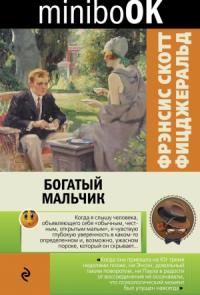
This Side of Paradise - The Original Classic Edition скачать fb2
Фрэнсис Скотт Фицджеральд - This Side of Paradise - The Original Classic Edition краткое содержание
The first thing that will strike you on reading this book will be the timelessness of its subject matter, no matter how dated the setting is. The Ivy League of Fitzgeralds indifferent hero, Amory Blaine, is a thing of the past, with only the faintest reminders of its aura of American royalty remaining today. Reading about Amorys days at Princeton is a bit like looking at the ancient photographs of 19th century football teams that every university seems to have on display in some corner of the campus, with the added twist that most of those long-ago jocks were presumably the sons of bankers and senators. And yet, Fitzgeralds depiction of a whirlwind of exhilaration, alienation, eagerness for the future and a sense that it should all be more meaningful is still all too recognizable to those of us who are just a few years out of college. So like all the best fiction, the story works both on a historical and a contemporary level. <p> Amory isnt the most sympathetic of protagonists. Coming from a non-aristocratic but quite cushy background, hes all you would expect from a Fitzgerald hero: full of himself, indifferent to the less fortunate, somewhat lazy, and at once condescending to and inept with women. But this is a story of young adulthood in the last gasps of the pre-World War I upper-crust, and Amory is the perfect vehicle for illustrating the youth of that time and place. Although the relative lack of details provided about Amorys experience in the war is odd, it adds to his Everyman quality for the generations since his, all of which have had their own reasons for a bleak outlook at some point even if few could match the sheer trauma of 1917-18. The one real flaw in the story is an inconsistent, and often unconvincing, quality when it comes to how and why Amory falls for the several women he endures romantic misadventures with. For all the heartbreak he endures, the reader is often left wondering where his attraction stemmed from in the first place – an odd shortcoming considering how good Fitzgerald was at illustrating that issue in later works. But the romantic episodes that do work are vivid enough to forgive the weaker ones. Also, as usual, Fitzgeralds narrative style is somewhat purple; but hes so good at it that it usually doesnt strike the reader as a problem. <p> Bleak as it may be, this is a great book for anyone who has survived young adulthood and remembers it honestly. Just try not to laugh or cringe next time somebody wants to talk about the good old days.
Чтобы оставить свою оценку и/или комментарий, Вам нужно войти под своей учетной записью или зарегистрироваться







